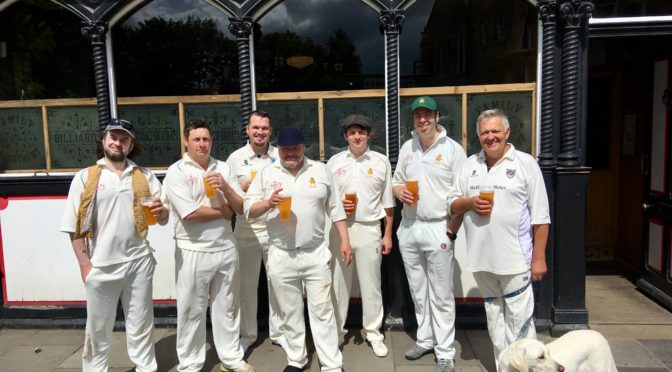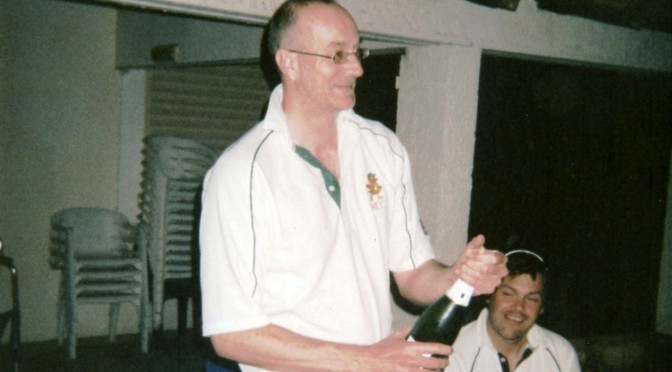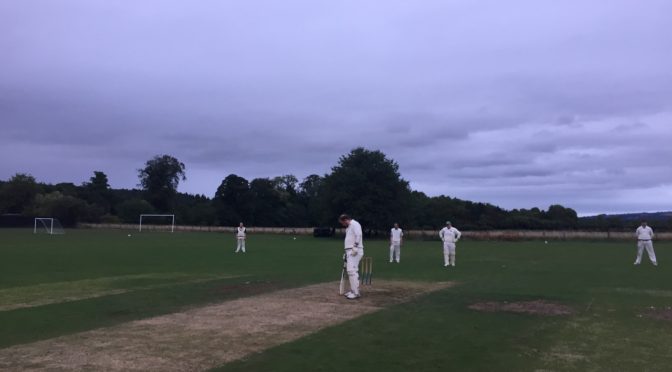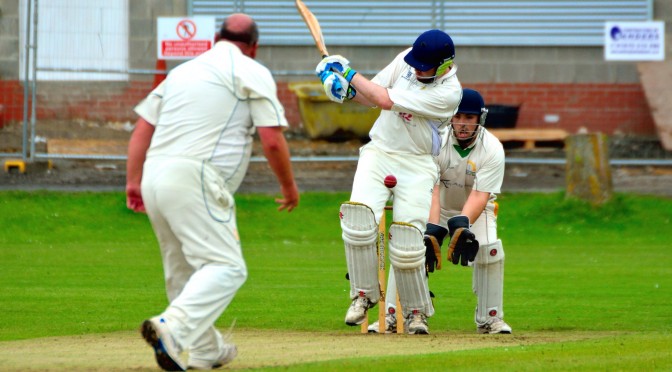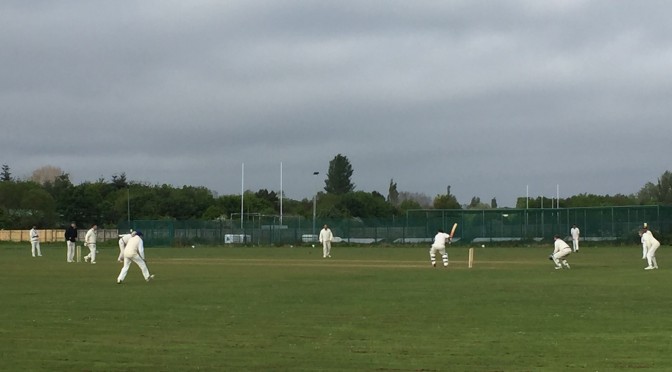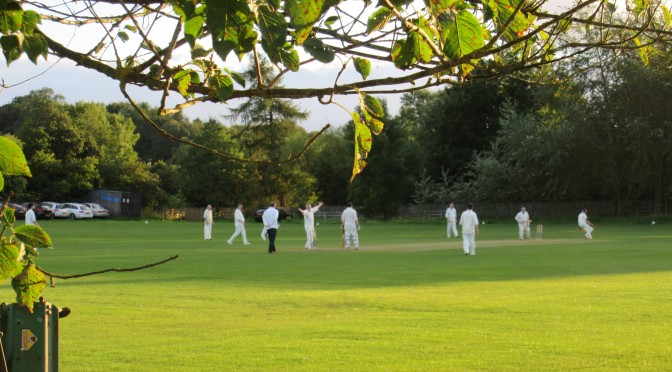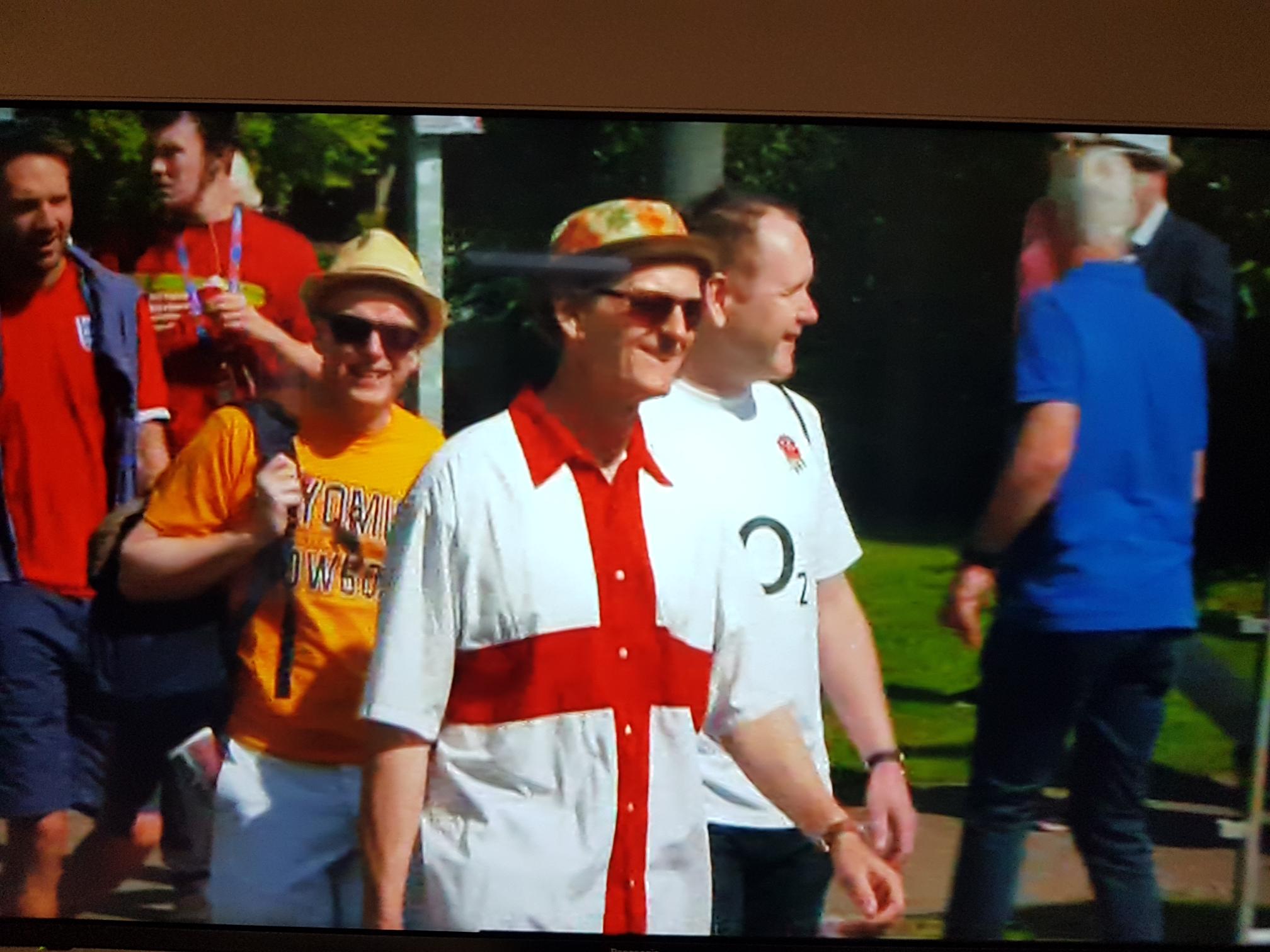On a gorgeously sunny evening at the end of August, 11 Mallards cricket players, men all good and true, assembled at Bill Quay Cricket Club to play the oft-anticipated fixture against Umpires. Eagerness, excitement and bon viveur abounded amongst the team as they gathered for the 5.30pm start, scheduled accordingly due to the nights closing in a tad quick at that time of year.
Unfortunately, no-one had told the opposition and they didn’t turn up until 6pm! Also, no-one had the keys to the container so no stumps, bails or cricket balls were available to the home side.
Therefore, after much discussion and debate, at 6.15pm the game started with yellow plastic practice stumps, plastic bails and, thankfully, with Mallards bowling first, a decent cricket ball.
Even more unfortunately, due to the writer of this match report waiting almost 2 months to draft up the happenings of the evening, and the scorecard for the innings of Umpires being somewhat bereft of detail, the information regarding the first innings of the evening may be a tad sketchy!
However, Skipper Buxom opened with the Watson “brothers”. The young, athletic A Watson opened from the housing estate end with a fine maiden. The slightly older, not-as-fast-as-he-once was, I Watson opened from the road end and, with his 4th delivery of his first over, took the wicket of opening batsman A. Jago for a duck, caught by Holland at mid-off. Finishing with a wicket maiden, Umpires were 0-1 after 2 overs. Both bowlers continued with their fine, efficient bowling and, in the 5th over, A Watson got the wicket his bowling deserved, clean-bowling the other opener, Adams, for 10. I Watson, deciding to not be usurped, took the wicket of Harrison who was caught by Mexter for a duck. No further wickets materialised for either bowler and both openers finished with fantastic figures: 4-1-10-1 for A Watson (deserved more) and 4-2-7-2 for I Watson. A great effort from both chaps to have Umpires at 17-3 after 8 overs.
The next two batsmen didn’t stick around too long and both were run out – R Bunker for 5 and C Duggan for just one.
The next 2 bowlers were Hamid Watson, nee Malik and Leon Watson, nee Mexter. Both men continued with the fine bowling displayed by Watson and Watson, and this Watson pairing kept it relatively tight, difficult to score from and they were backed up by good fielding from the rest of the Mallards (as the run outs show).
Malik got a wicket with his 2nd delivery having A. Hill caught for just four – a nice bit of revenge having just been hit for the aforementioned four off his first delivery and there were just a handful of runs of the remaining deliveries with Watson/Mexter also keeping it tight from the road end. Watson/Malik kept it even tighter in his 2nd over, with just 5 coming from it (one four and a bye) before Mexter got one of his traditional lbws, having M. Jago caught plumb in front on the middle yellow plastic stump! Watson Malik took the wicket of M. Howard in his 3rd and final over for just 4 and Watson Mexter conceded 7 off his third and final over for the bowlers to finish on 3-0-22-2 (Malik) and 3-0-21-1 (Mexter). At the end of 14 overs, Umpires were 62-8. The final 4 overs (the match having been reduced to 18 overs per side due to the late start) were to be bowled by Nitsch and Holland. Nitsch had a mare of a first over, going for 15 including 2 fours and a six from their captain, Lowe. Holland didn’t fare that much better, going for 11 off his first over, but it did see the retirement of Lowe. The last batsman, Cockburn, came in, scored one, then was out from the bowling of Nitsch after hitting his wicket, bringing the fast-scoring Lowe almost immediately back to the crease. Thankfully, he was run out from the last ball of the innings for 32, with D. Averil remaining not out on 26. Having scored 58 between them, those 2 batsmen scored more than half of their teams’ runs.
Astonishingly, there were 4 (FOUR) catches by Mallards fielders today – 2x Holland (who was as surprised as the rest of us), 1x McCaffery – who took it diving/falling/tripping (delete as appropriate) to his left and went down like the proverbial sack of spuds in super slo-mo, and one by Mexter who used his ridiculously long arm to take one very low down.
The Mallards reply began with Kent and Ankush opening the batting and to say it was something of a demolition of the opening bowlers, M. Howard and A. Hill is a bit of an understatement. Boundaries flowed, mainly for Ankush and off the bowling of Howard, who finished with figures of 2-0-23-0. Hill was a bit better and finished with figures of 2-0-12-0. After 4 overs, Mallards were motoring along rather nicely at 36. Howard was replaced by C Duggan who went for 14 off their first over. 5 overs gone, 50 runs on the board for Mallards. Just under halfway there and still 13 overs to go. Surely Mallards couldn’t mess this one up?!! We have been there before however!
Ankush had, by the end of Duggan’s first over, retired for a very quick 30 and this brought McCaffery to the crease. However, “The Cat” was soon heading back to the dressing room for a duck, chopping on to his wicket from the rather pacy bowling of Lowe (more of that later). Duggan then struck in his 2nd over, clean-bowling Nitsch for just one. 50-0 had very quickly moved on to 57-2 after 7 overs. However, with Kent and A. Watson at the crease, hopes were still high.
By now, the light was fading fairly fast and the pace of the bowling of Lowe was causing some consternation from the boundary, particularly from Skipper Buxom who wasn’t impressed at all. Cockburn replaced Duggan and took the wicket of A Watson for just 2, after he’d underhit a shot that would usually fly to the boundary for 6 and was caught by Howard. Wilson came to the wicket and manfully supported Kent in the run chase, eventually being clean-bowled by Cockburn for six, including one delightful four. After 13 overs, Mallards were now at 76-4. Plenty of wickets in hand and 5 overs still to go to get 30 runs. Easy eh?
Skipper Buxom had come to the wicket in near darkness and didn’t see his first delivery from Cockburn until it literally passed his bat. Thankfully it wasn’t in line!! However, Buckley and Kent went after the bowling and Kent retired on 31. This brought Malik to the crease and both batsmen continued to attack the bowling on offer. The game finished with Buckley thrashing Averil to the boundary for 4 and Mallards winning the game with 3 full overs to spare!!
In the pitch black, the teams walked off the pitch shaking hands, exchanging pleasantries and having enjoyed another fantastic game between these two teams. After the last 2 years’ games being separated by just the one run out of 400+, this was a somewhat different beast. The vast majority of players retired to the bar to have a drink or two, as well as consuming the fantastic purchase of chip butties and curry sauce by Mr McCaffery once again. It’s worth playing this game just for those!!
As a footnote to this match report, the delay in writing this was due to a mixture of work commitments, holidays but, more importantly, the sad and very upsetting news of the sudden, unexpected passing of Leon Mexter, only a couple of weeks after this game. The spirit of Mallards was epitomised by Leon and none more so in this game – giving his all when fielding and bowling, taking a(nother) wicket and a catch whilst, at the same time, kicking the ball over the boundary to concede a four when trying to field it! Typical Mallard! I know I speak for everyone within the Mallards and local friendly cricket community when I say that he will be sorely missed and never forgotten.



